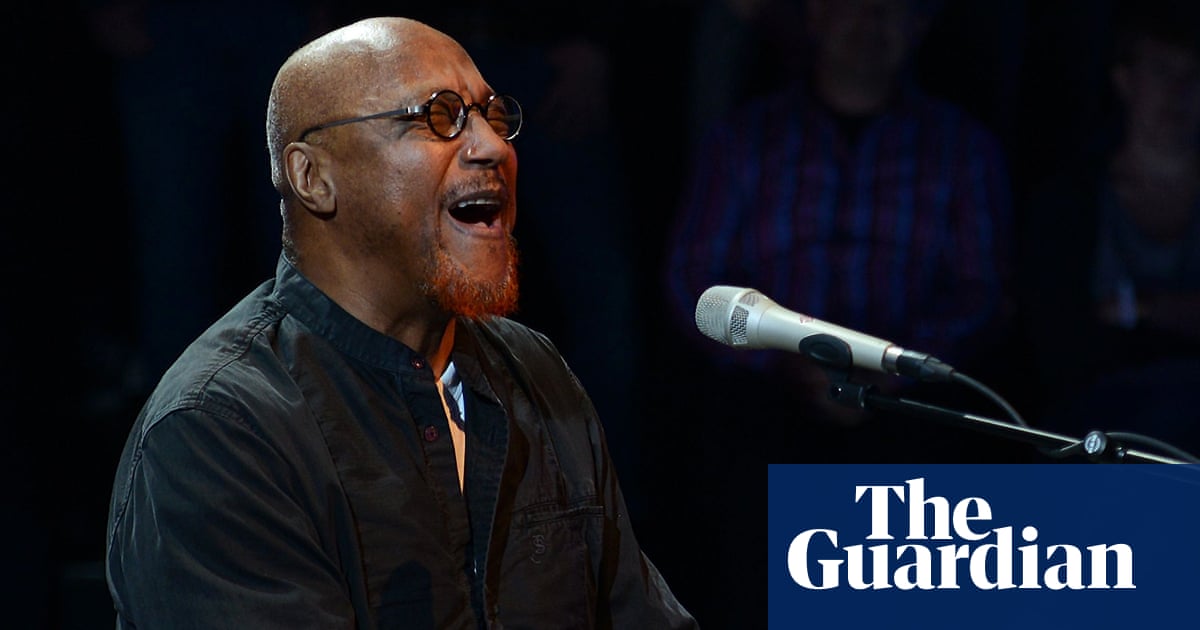For decades, Labi Siffre’s hit (Something Inside) So Strong has been a global anthem against apartheid. It was inspired by a documentary about apartheid-era South Africa, and was widely reported to be Nelson Mandela’s favourite song.
But now the singer-songwriter has taken the step of issuing Tommy Robinson with a cease and desist order after the far-right activist incorporated the song into his social media posts and used it at the recent “unite the kingdom” rally in central London.
It is a turn of events that seems “absurd” to 80-year-old Siffre, who has spent most of his life facing battles over his race and sexuality.
“Anybody who knows me and knows my work since 1970 will know the joke of them using the work of a positive atheist, homosexual black artist as apparently representative of their movement,” Siffre said in a rare interview with the Guardian.
The musician and his publisher, BMG Rights Management, have issued the cease and desist order to Robinson, whose real name is Stephen Yaxley-Lennon, against the unauthorised use of his work. “They’re breaking all sorts of copyrights,” Siffre says. “Even in an era when theft is easier than it ever was, it’s still theft.”
During his rally earlier this month, which was attended by more than 110,000 people, Robinson invited a former X Factor contestant to sing (Something Inside) So Strong. “I always like telling stories through music and this next song now is going to tell all of our stories of why we’re here and why we care,” Robinson said.
Last year, the activist also posted the lyrics of the song to his X account, after allegedly fleeing the country after committing contempt of court.
As a result, Siffre says he has received numerous messages of thanks from Robinson’s supporters via his X account, congratulating him for backing the movement. “I haven’t responded,” he says, before laughing. “What can you do?”
Siffre was born in 1945 to a Nigerian father and mixed-race mother and was raised in west London. He released his self-titled debut album in 1970 and put out a further five solo albums in the first half of the 70s.
His music has addressed both the political (with songs tackling war veterans, homelessness and religion) and the personal (Siffre was an out gay, black soul and folk singer at a time when it wasn’t generally accepted in the industry). He scored three Top 40 hits and had a significant cultural impact: Madness covered his song It Must Be Love, while artists including Jay-Z, Primal Scream and Eminem have sampled his music.
(Something Inside) So Strong was penned in 1984, following a period of self-imposed retirement – because, he says, he felt compelled to write something.
“I had just seen this documentary of white soldiers [in South Africa] shooting at black people in the street indiscriminately. I knew I wanted to write a song about apartheid,” he recalls.
“One evening, late, I found myself in my studio sat down at the keyboard. I played a C chord, put my head back, and immediately, without thinking, I sang the first two lines of the song. It just came out. I had a tear in my eye and realised that I was writing about my life as a homosexual child, a homosexual youth, a homosexual man, and the battle that that entailed.”
But when he finished the song, Siffre says he realised it was for “just about anyone who had a battle to fight. Even if it was a small battle that day at work, or a small problem in their relationships. Its relevance was even wider than my life as a homosexual, or apartheid.
“In the intervening years, I’ve found that the song has been useful to people, which is what I always intended for my work. I’ve always wanted to be useful to human progress.”
after newsletter promotion
When it was released in 1987, the track spent 14 weeks in the top 100. It earned Siffre an Ivor Novello award, was covered by Kenny Rogers and has been used in Amnesty International campaigns. Siffre – who went on to release four albums from 1988 to 1998 – also performed it in Trafalgar Square for Mandela’s birthday in 2001.
Does he feel angry about it now being used at far-right rallies? “No. This battle for me started at the age of six,” he says. “That was the first time, when I was holding my father’s hand in Ladbroke Grove, that I saw a postcard in a window that said ‘No blacks, no Irish, no dogs’. I knew then that that meant me.
“These people would have to be incredibly creative to come up with anything that would offend or hurt my feelings, and they are not creative people. It’s just same old, same old. I wish the media would stop talking about this as an unprecedented movement. There’s nothing unprecedented about it. Anyone who has even the slightest knowledge of 20th-century history should know that.”
The musician and poet was also keen to highlight the “global” nature of Robinson’s movement. “Trump and Maga are at the head of it, as the relationship with Elon Musk made clear [Musk appeared via video link at the London rally].”
Siffre is the latest figure in a long line of musicians who have condemned the unauthorised use of their music for political reasons. The Smiths guitarist Johnny Marr said “I forbid” David Cameron from even liking the band’s music, and hit out at the use of their songs at Trump rallies. Other musicians who have criticised Trump for using their work include Beyoncé, Céline Dion, Neil Young and the Foo Fighters.
Tommy Robinson has been approached for a response.
